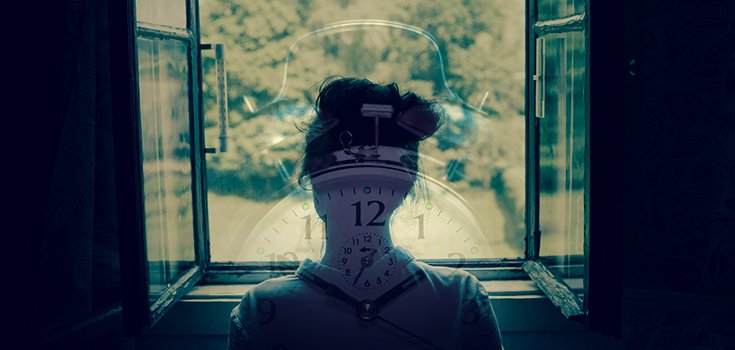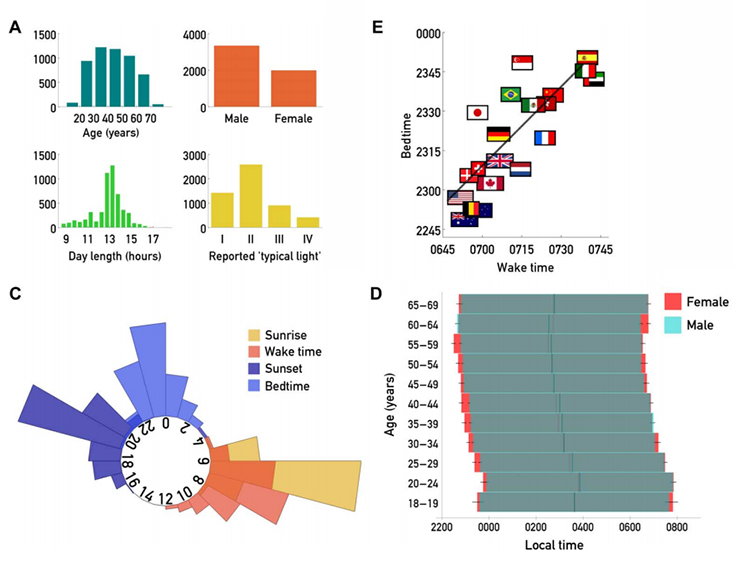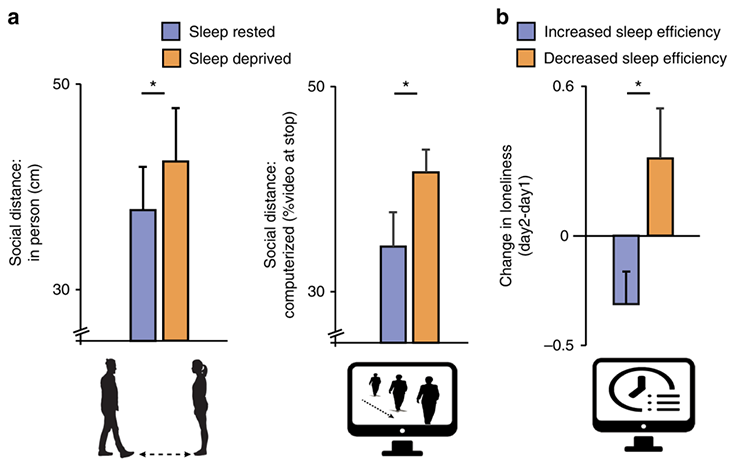Loneliness Could be a Sign You’re Not Getting Enough Sleep

Not getting enough sleep can cause a slew of health problems that generally are aware of, but research suggests it may cause a couple of other conditions you wouldn’t normally associate with sleep deprivation: loneliness and isolation.
What’s more, your lack of sleep doesn’t just affect you; sleep-related loneliness can be “contagious,” proving that the old saying “misery loves company” is entirely accurate.
Yes, a lack of sleep can make you feel alone and isolated and can actually drive you to distance yourself from people even more. In the study, people who didn’t get enough Z’s were viewed by others as being lonelier and less socially “attractive” compared with people who were fully rested. The authors said this indicates there may be a “viral contagion of social isolation” that comes with not getting enough rest.
The findings raise the possibility that there is a connection between concurrent increases in sleep deprivation and social isolation in populations in developed countries. The question is, are lonely people simply less likely to get quality sleep, or does a lack of sleep lead to loneliness?
In a statement, lead study author Eti Ben Simon, a postdoctoral fellow at the Center for Human Sleep Science at the University of California, Berkeley, said:
“It’s perhaps no coincidence that the past few decades have seen a marked increase in loneliness and an equally dramatic decrease in sleep duration. Without sufficient sleep, we become a social turnoff, and loneliness soon kicks in.”
A 2016 study published in the journal Science Advances suggests that the world is in the midst of a “global sleep crisis.” Scientists tracked the sleeping patterns of people worldwide, as well as information regarding study subjects’ age, gender, and exposure to natural light where they lived.

The study found that even a difference of 30 minutes in sleep duration can drastically affect a person’s health and ability to function. The authors concluded that “impaired sleep presents an immediate pressing threat to human health.”
There’s a lot of unhappy people in the world, and it’s not hard to understand why. In 1942, Americans got about 7.9 hours of sleep, on average. Today, the average American only gets an average of 6.5 hours of snooze time. [2]
Dr. Matt Walker, founder and director of Center for Human Sleep Science at University of California-Berkeley and lead author of the study, said:
“Mother nature took millions of years to perfect our sleep and we just shaved off over an hour to fit our lifestyle.”
Americans and people in other developed countries have become too busy, and they’re paying for it with their health, mental state, and social relationships.
The Link Between Sleeplessness and Loneliness

In an effort to better understand how sleep deprivation negatively affects social relationships, researchers conducted a series of experiments that paired brain scans with surveys to help rate the participants’ loneliness. They also showed the volunteers videos that simulated real-life scenarios.
The small study examined the social and neural responses of 18 healthy participants at 2 times: after a night of adequate sleep, and after a sleepless night.
The videos viewed by the participants depicted individuals with neutral facial expressions walking towards them. The study subjects were asked to press a “stop” button when the people in the video got uncomfortably close. The scientists recorded how close the participants allowed the people in the video to get to them and found that sleep-deprived participants wanted greater distance from the people.
The more sleep-deprived the participant, the more personal space the participant craved.
Brain imaging of the participants’ neural activity showed the tired participants’ social aversion and it was remarkably similar to what is seen in a person who feels that their personal space has been invaded.
In sleep-deprived study subjects, fMRI images showed less activity in the regions of the brain that usually promote socialization.
Walker said:
“Being able to see which parts of the brain were actually shutting down in the sleep-deprived population was the most riveting part of the study.”
For the next part of the study, the researchers asked more than 1,000 online observers to view short video clips of study participants discussing day-to-day topics. The sleep-deprived participants came across as lonelier, and after watching videos of these individuals, the online observers said that they, too, felt more loneliness and alienation.
Even losing 10 to 15 minutes of sleep made people feel lonelier – a concerning discovery, considering loneliness can cause health problems of its own.
In fact, a study published in 2017 found that loneliness and social isolation may be even deadlier than obesity or smoking 15 cigarettes a day. Loneliness was so deadly that the authors considered it a stronger predictor of mortality than obesity.
Walker said:
“Loneliness is not benign and it actually increases your mortality risk over 45%.”
Ironically, if you struggle with loneliness, you’re not alone (pun intended). Nearly half of the U.S. population reports feeling lonely or socially alienated.
But you can (pardon the pun) rest easy. Unless you have a bonafide sleep disorder that requires treatment, there’s an easy fix for the loneliness and isolation that comes with a lack of shut-eye.
Walker remarked:
“On a positive note, just 1 night of good sleep make you feel more outgoing and socially confident, and furthermore, will attract others to you.”
You can read the study for yourself in the journal Nature Communications.
Sources:
[1] Live Science
[2] ABC News
